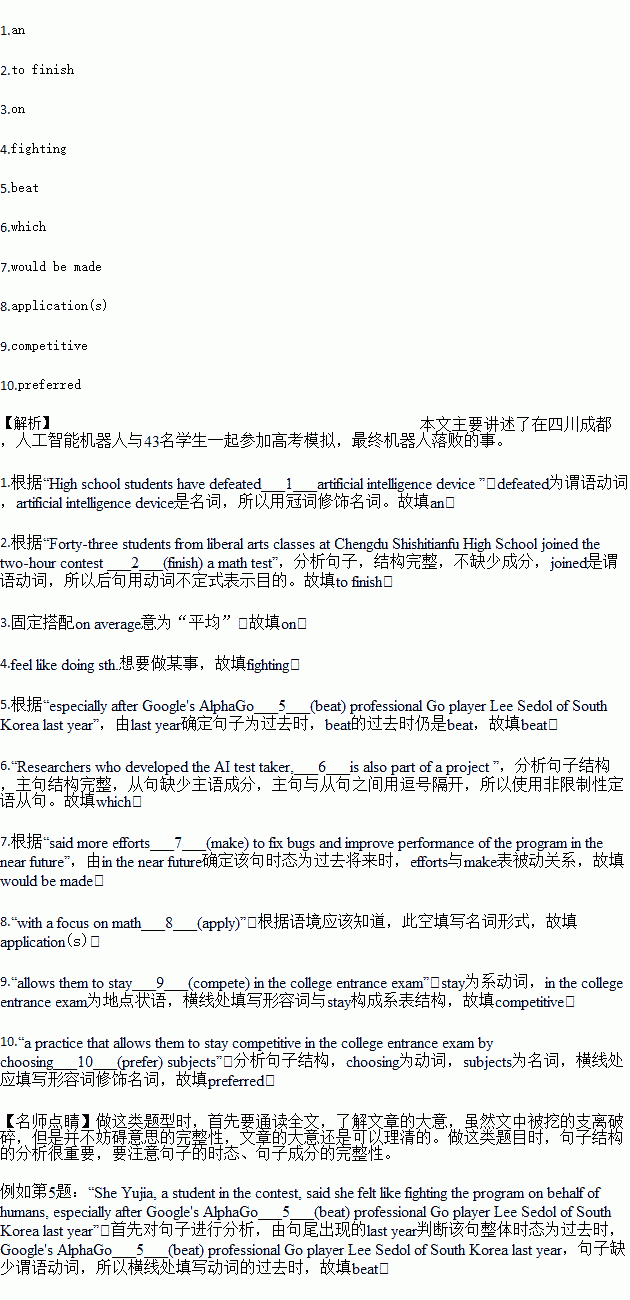题目内容
High school students have defeated1.artificial intelligence device designed to pass the national college entrance exam, in Chengdu City, Sichuan Province.
Forty-three students from liberal arts classes at Chengdu Shishitianfu High School joined the two-hour contest 2.(finish) a math test in the standard national entrance exam against the robot, the brainchild of four years' research by Zhun Xing Yun Xue Technology Co.Ltd.
Students scored 106 points3.average, outperforming the computer program that had 93 points. She Yujia, a student in the contest, said she felt like4.(fight) the program on behalf of humans, especially after Google's AlphaGo 5.(beat) professional Go player Lee Sedol of South Korea last year.
Researchers who developed the AI test taker, 6.is also part of a project by the Ministry of Science and Technology, said the failure was due to a poor understanding of concepts in some math problems.
Lin Hui, CEO of the developing company, said more efforts 7.(make) to fix bugs and improve performance of the program in the near future, with a focus on math 8.(apply).
Chinese students are usually separated into science and liberal arts classes at high school, a practice that allows them to stay 9.(compete) in the college entrance exam by choosing 10.(prefer) subjects. Math tests for liberal arts students are usually easier than those given to science students.
 天天向上一本好卷系列答案
天天向上一本好卷系列答案 小学生10分钟应用题系列答案
小学生10分钟应用题系列答案人们对待机遇有不同的态度,请以“Opportunities favour the prepared mind”为题,按要求用英语写一篇150词左右的文章,要点如下:
对待机遇的态度 | 结果 | 你的观点 |
梦想着成功,却迟迟没有行动,等着天上掉馅饼 | 只能看着机遇从身边悄悄溜走 | (请举例说明) |
默默努力着,为机遇的到来做好充分准备 | 最终迎来成功的喜悦 |
注意:1.可参照以上内容适当发挥;
2.文中不能出现真实姓名和学校名称。
____________________________________________________________________________________________
____________________________________________________________________________________________
____________________________________________________________________________________________
____________________________________________________________________________________________
____________________________________________________________________________________________
____________________________________________________________________________________________
____________________________________________________________________________________________
___________________________________________________________________

